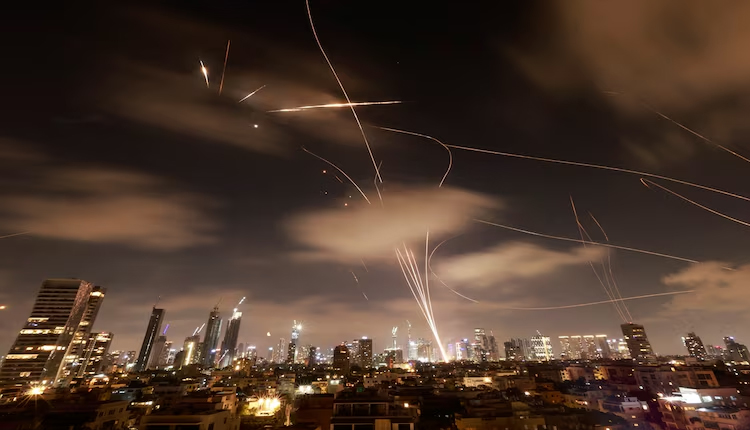New Delhi: On Wednesday Iran fired a hypersonic missile called Fattah-1 at Tel Aviv in a vast move that proved to require an unconditional surrender of Iran, something which U.S. President Donald Trump demanded just hours earlier.
The missile attack came as a part of the Iranian operation called the Honest Promise 3, in which there were high-intensity attacks by Israel on the military and nuclear positions of Tehran. Iran claimed that the Fattah-1 struck some of the locations that were important to Israeli intelligence, with Israel saying that most of the missiles were deflected, causing only minor damage. Tel Aviv was rocking with explosions and sirens ordering people to shelters. Iranian state media said at least 224 people, most of them civilians, were killed in Tehran by Israeli airstrikes. Israel stated that it had 24 civilian casualties in the Iranian attacks.
Iran has what it calls the Fattah-1, known as the Israel Striker, which is said to be hypersonic, but critics state that its manoeuvrable reentry vehicle makes it undetectable to defences. Fabian Hinz, an expert on air warfare at the International Institute of Strategic Studies, stated, ‘The warhead on the Fattah-1 can manoeuvre mid-way, which poses a daunting challenge to missile shields.’
Trump, who abruptly ended a G7 summit in Canada, threatened Ayatollah Ali Khamenei, the Supreme Leader of Iran, on his Truth Social last weekend: ‘We understand where [he] is hiding…’ Our patience is dwindling. Ayatollah Ali Khamenei responded with a demand, “I believe you understand what I mean by unconditional surrender.” The U.S. sent a few more fighter planes to the Middle East, but officials claim they have no offensive plans. Israeli Defence Minister Israel Katz swore to keep attacking the missile bases of Tehran.
Iranian Foreign Minister Abbas Araghchi blames Israel for foiling nuclear negotiations and criticises President Trump for reeling in Israeli Prime Minister Benjamin Netanyahu. In the meantime, world leaders, such as the French President Emmanuel Macron, urged a ceasefire, citing the destabilisation of the region. The dispute, which has already escalated following the Israeli attacks on Iranian nuclear facilities, has the potential to widen further
As casualties among civilians rise and both parties remain relentless, it becomes even harder to navigate diplomatic channels, and the Middle East is preparing to suffer more bloodshed.



Comments are closed.